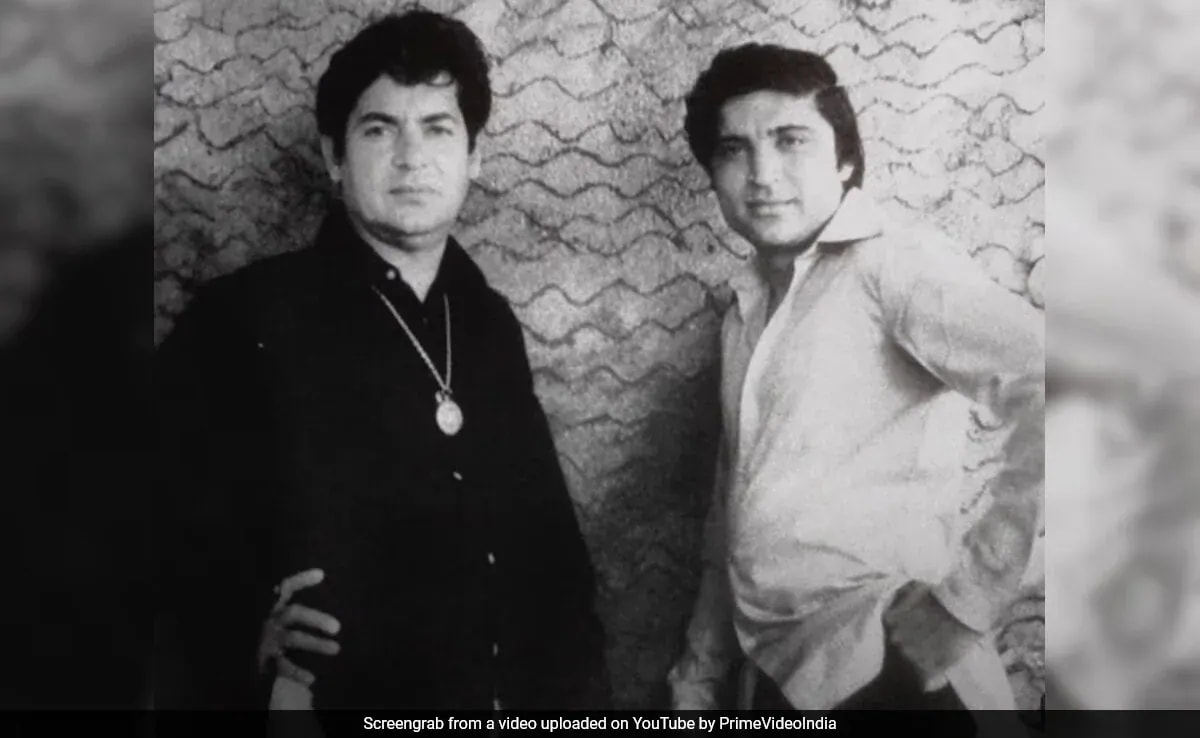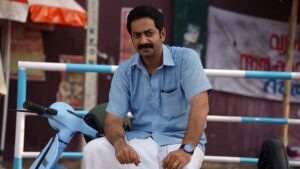Absolutely worthy of a documentary mini-series treatment

New Delhi:
Its defining characteristics Zanjir, Diwar And in shoal The screenplay – the speed and power – is impossible to replicate in a documentary series, even if it’s about the men who wrote them. Angry Young Men – The Salim-Javed story, however, is full of elements that make it instantly interesting and entertaining.
Produced by the progeny of the iconic writing duo – Salman Khan (Salman Khan Films), Farhan Akhtar (Excel Media & Entertainment) and Zoya Akhtar (Tiger Baby) – the three-episode Amazon Prime Video show does a perfect job of bringing to light the essentials of Salim Khan-Javed. Akhtar’s partnership, which produced some of the best Hindi megahits of the 1970s.
Directed by film editor Namrata Rao, whose often-demonstrated sense of narrative pacing comes in handy, the series has the power and energy to turn an assessment of a remarkable work into a lively mix of information and analysis.
Salim Khan came to Bombay from Indore to try his luck as an actor. Ten-year-old Javed Akhtar came to the city from Bhopal. Both faced years of struggle before they became a duo who churned out a series of blockbusters.
Their phenomenal success rate, a piece of Hindi cinema folklore, absolutely deserves the documentary mini-series treatment that it hasn’t earned a day too soon. “The two boys came out of nowhere and became game changers,” Salim said. “They changed the status of film writers.”
Keenly aware of the immense value they placed on the films they scripted, the two writers, one of whom was in his mid-20s in the early 1970s, demanded their right to be recognized. Before release chainedIn the 1973 revenge drama that rescued Amitabh Bachchan from the lowest ebb of his career and sent him on the path to superstardom, Salim-Javed stenciled their names on the film’s posters. It was an act of defiance and a statement of intent.
Most of the anecdotes are narrated by Salim and Javed themselves, with many contemporaries, associates and successors pitching in with their recollections and impressions. The series contextualizes the meteoric rise and subsequent triumph of the two screenwriters and highlights the films, stories and characters they created to help Hindi cinema leap into the future.
Similar to the way the personal and the social merge in Salim-Javed’s “Angry Young Man” — a character brought to life on screen by Amitabh — the series uses the perspectives of two screenwriters who part ways after delivering 20-odd blockbusters. Decades and a Bit and presents a vivid portrait of the amalgamation of the professional and the personal, the creative and the commercial.
Angry Young Men Salim and Javed dive into their relationships with parents, spouses, children and the film industry. With Shabana Azmi, Honey Irani and Helen spotlighting two people they knew very well, the series features many Mumbai industry leaders recalling and appreciating Salim-Javed’s output.
Amitabh, Jaya Bachchan and Hema Malini on one end, Salman, Farhan, Zoya and Arbaaz Khan on the other. It also includes interviews with Dharmendra, Shatrughan Sinha, Ramesh Sippy, Aamir Khan, Rahul Rawail, Ramesh Talwar, Mahesh Bhatt, Karan Johar and screenwriter Anjum Rajabali among others. Each of them reveals a perspective or a nugget of insight that adds a layer to the picture.
Angry Young Men Salim-Javed’s emphasis on anti-establishment sensibilities informs the screenplay. They played to the discontent within the middle class, the struggles of the oppressed and the anger at injustice. Their scripts moved away from independent India’s flirtation with the music-filled, hope-filled romance of the 1960s.
male protagonist in chained 1960s Hindi film heroes do not sing or romance the heroine. He single-handedly fights against the system and the forces of evil in a way that reflects the angst of an increasingly disillusioned populace.
By creating that brooding, brooding and aggressive male rebel, Salim-Javed captured the spirit of the era to perfection – an aspect of their work that comes up again and again. Angry Young Men.
The fact that they mainly looked at society and its ills through a male perspective is noted by Anjum Rajabali, who noted the “insignificance of women” in their films but acknowledged the “mother factor”. to give, the trident And strength.
Counterpoint is provided by others, including Zoya Akhtar and Reema Kagti, who insist that Salim-Javed’s fictional women never lacked agency and were certainly no pushovers. This debate could be the theme of a broader discussion, which is beyond the why of this series.
One wonders if a series backed by those closest to Salim Khan and Javed Akhtar could ever be fully clear about who Salim Khan and Javed Akhtar were (or were) and what they brought to the filmmaking business at the height of their screenwriting prowess.
This reservation is dispelled in significant measure by a long path that touches aspects of their lives and work – “Pride comes with unprecedented success,” someone has said – that can lead to a somewhat premature end to their dream run.
Angry Young Men Not hagiography. While it tracks the heights of success that the duo scaled, it doesn’t hesitate to investigate what caused their split and consequent take as scriptwriters. Javed himself admitted: “Salim-Javed did not realize the value of goodwill.”
indeed, Angry Young Men Documentation is sometimes low. There was no one worse Faith is religion Defeat in 1977. The purple patch started around 1971 and continued into the early 1980s (the last was Mr. India, made from a Salim-Javed script, but released in 1987).
Besides to give And in shoalBoth scripted runaway success in 1975 Yadan ki barat, the trident, Black Stone, Don And strength. Salim-Javed achieved their “angry” Bachchan films with barely remembered works like Haat Ki Safai, Akheri Dao and Chacha Bhatija, and Dostana, which was “less fire” than Javed Avers’ Dewar, and Zaanjeer, their 1970s releases. Not said in the same breath.
Underlying the Salim-Javed story is a friendship between two men who find each other in Bombay looking for work, a creative partnership that rewrites the ground rules for screenwriters in Mumbai cinema, and the process of parting and moving on without regret or guilt. .
Angry Young Men A story that moves brilliantly and an important, absorbing and well-crafted film makes for a dramatic new dawn at the top and middle of industry and society.



